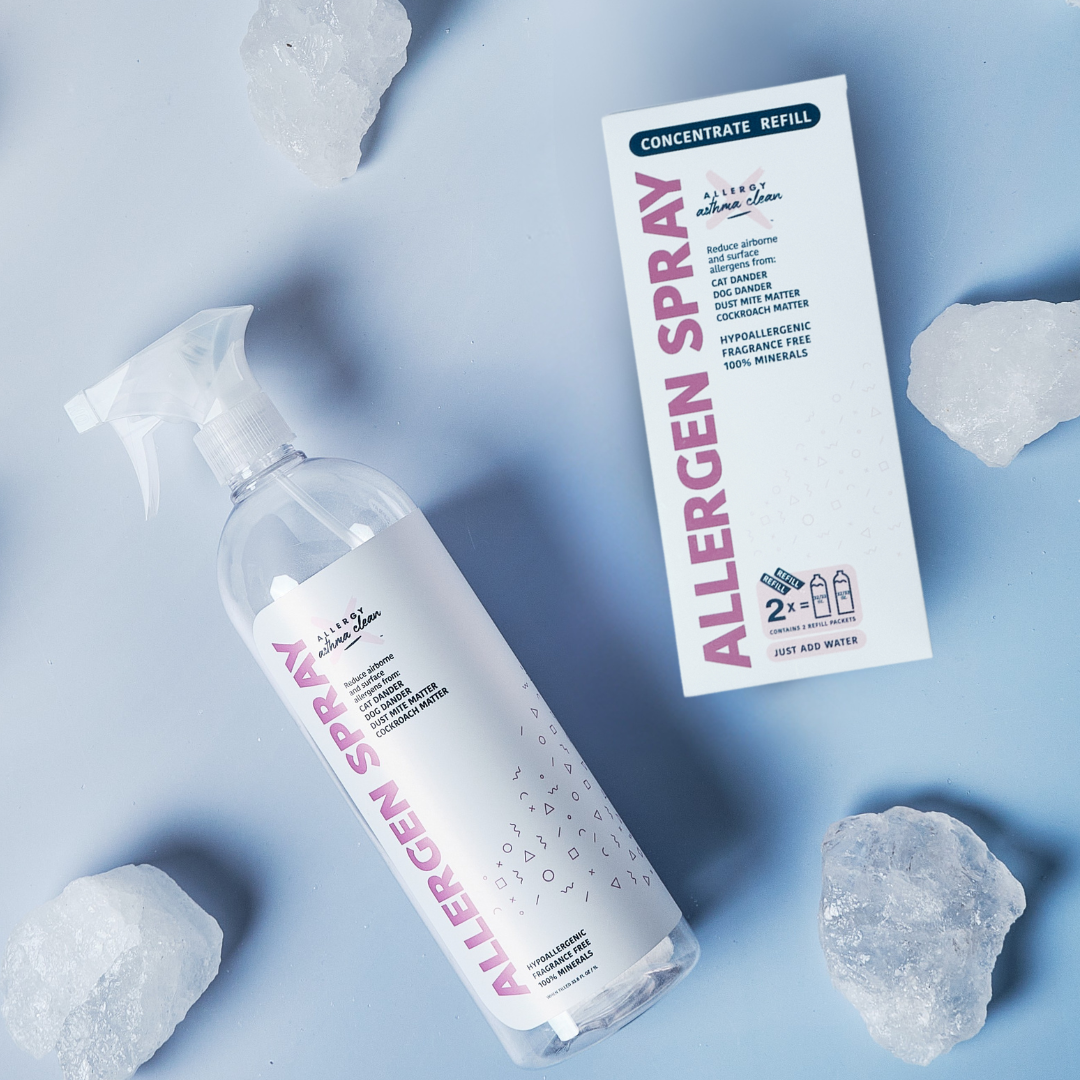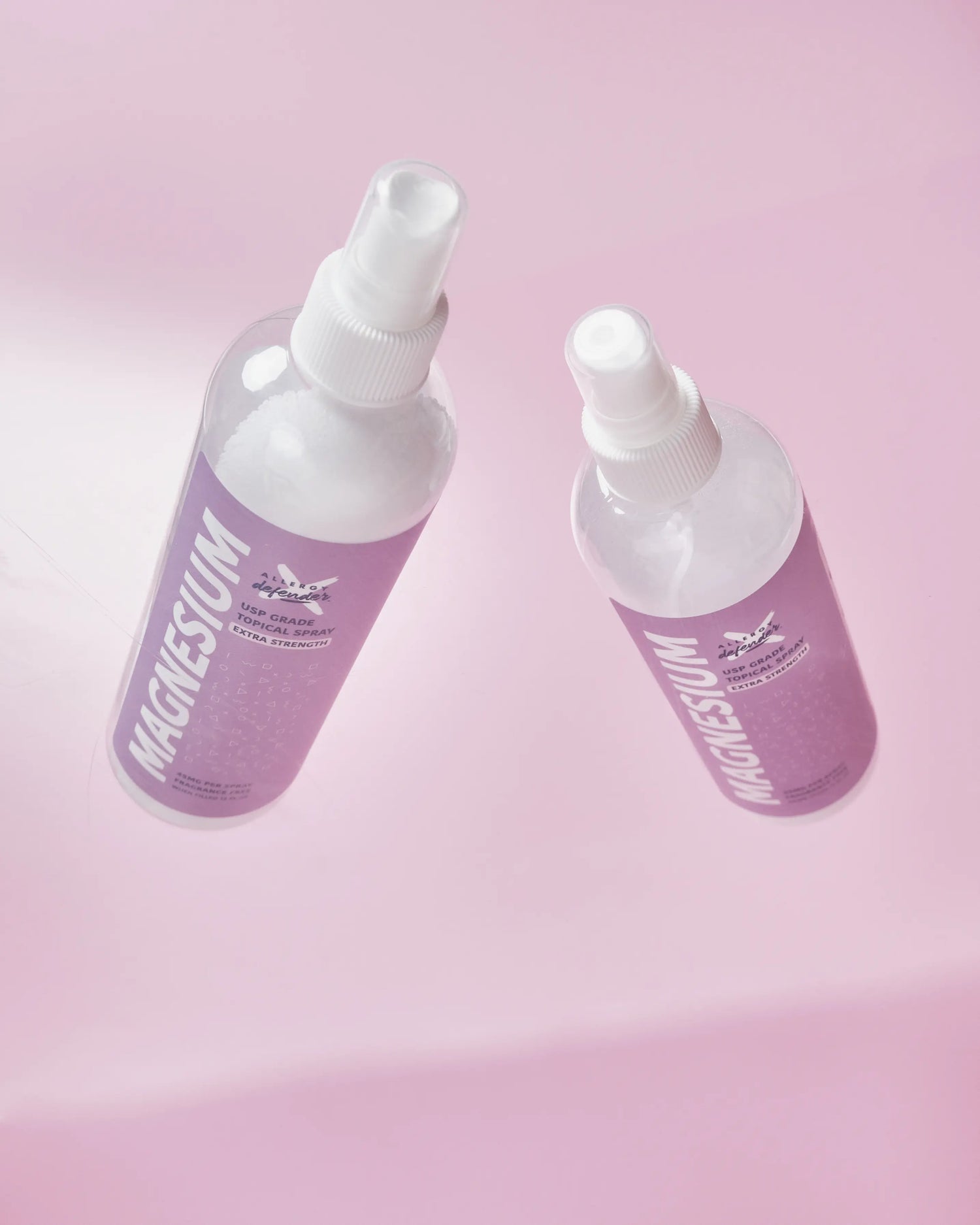Can Your Dryer Wipe Out Dust Mites?
TL;DR Dust mites thrive in warm, humid environments (beds, carpets, upholstery), feeding on dead skin cells. Their waste proteins trigger allergies and asthma. Dryers can kill dust mites if they reach 130°F (54°C) for 30 minutes or more—most dryers operate at 120-160°F, while commercial dryers average 176°F. Studies show that 97% of mites survive typical washing (detergents only dislodge, but don't kill); however, tumble drying on high heat reduces mites by 93%, and freezing smaller items (such as silk pajamas) for 24 hours also kills them effectively. Dryer effectiveness requires checking temperature settings, running full high-heat cycles, targeting bedding/pillows, supplementing with weekly HEPA vacuuming, and using Allergy Asthma Clean Allergen Spray by Allergy Defender. Additional strategies: wash bedding in 130°F+ water, control humidity below 50%, use dust mite-proof covers.
Key Takeaways:
- Dust mites are everywhere. They prefer warm, humid environments – found in beds, carpets, laundry, upholstery; feed on dead skin cells; waste proteins cause sneezing, runny nose, itchy eyes, asthma; small size enables hiding in nooks and crannies
- Washing alone is insufficient – studies show 97% dust mites survive typical wash cycles; detergents dislodge but don't kill; high heat tumble drying reduces mites by 93%; freezing items (like stuffed animals nestled inside a plastic bag) for 24 hours also kills them effectively
- Temperature and duration is critical – dust mites die above 130°F (54°C); must maintain temperature for 30+ minutes minimum; brief high heat exposure insufficient; most home dryers 120-160°F, commercial average 176°F
- Proper dryer use is essential – check temperature settings reach 130°F+, run entire high-heat cycle thoroughly, clean lint trap and vents for optimal performance
- Allergy Asthma Clean Allergen Spray by Allergy Defender is the easiest solution – spray bedding, mattress, pillows without turning on the dryer or doing extra work; designed to reduce dust mites efficiently; highly rated, effective alternative to high heat drying
- A comprehensive approach is the most effective – combine dryer use with weekly HEPA vacuuming, hot water washing (130°F+), humidity control below 50% (dehumidifiers/AC), dust mite-proof mattress/pillow covers, and biannual carpet steam cleaning
Dust mites are really everywhere, but they especially like warm, humid environments. They feed on dead skin cells in bedding, carpets, and upholstery. Despite their size, they really impact your health, triggering allergies and asthma symptoms due to the proteins in their waste. Most people who are allergic are allergic to dust mites. Because of their small size and ability to hide in nooks and crannies, dust mites are challenging to get rid of. So, here's the question: Can Your Dryer Wipe Out Dust Mites?
Key Insights About Dust Mites:
- Found in beds, carpets, and upholstery, and yes, even pj's
- Thrive in warm, humid environments
- Causes asthma and allergy symptoms like sneezing, a runny nose, and itchy eyes
Can your dryer wipe out dust mites? It’s not a simple yes or no. High temperatures can kill dust mites, but your dryer's effectiveness depends on its heat and operation. Understanding the temperature and time needed to kill dust mites is pretty darned important to determine if your dryer is up to the task.
Dust mites are resilient but vulnerable to high temperatures. Prolonged exposure to intense heat is one of the most effective ways to eliminate them.
Laundry and Dust Mites:
- Washing isn’t enough: Studies show 97% of dust mites survive a typical wash. Detergents only dislodge them; they don’t kill.
- Tumble drying helps: High heat can reduce mites by 93%.
- Cold works, too: Freezing small items for 24 hours kills dust mites effectively.
Studies show dust mites start dying at temperatures above 130°F (54°C). For effective elimination, it's crucial to maintain this temperature for at least 30 minutes. Brief high heat exposure won't suffice.
Can Your Dryer Wipe Out Dust Mites? Here's How:
-
Check Temperature Settings: Ensure your dryer reaches at least 130°F (54°C) for 30 minutes.
Most dryers operate between 120°F and 160°F, while commercial dryers average 176°F. Tumble drying on a low setting will most likely not kill dust mites. - Dry Thoroughly: Run the entire cycle to ensure sufficient heat exposure.
- Target Key Items: Focus on bedding, clothing, pillows, and more.
- Supplement Cleaning: In addition to drying your bedding and other laundry on high heat, vacuum weekly. Consider having your carpet steam cleaned every six months, and use Allergen Spray.*
- Maintain your dryer: Clean the lint trap and check the vents.
Other Strategies to Combat Dust Mites:
- Maintain cleanliness by vacuuming carpets and upholstery with a HEPA filter vacuum cleaner.
- Wash bedding and even your curtains in hot water (at least 130°F/54°C).
- Control humidity to below 50% using dehumidifiers or air conditioners. How do you know the humidity in a room? A hygrometer is a device that measures the moisture level in the air, helping you monitor whether your room's humidity is comfortable and healthy. One can purchase this inexpensive gadget online.
- Use dust mite-proof covers for mattresses and pillows.
- Allergen Spray* is designed to reduce dust mites the easy way. Simply spray your bedding, mattress, and pillows. There is no need to throw anything in the dryer or do any extra work.
Your dryer can be a powerful tool against dust mites when used correctly and combined with other strategies. By focusing on areas prone to dust mites, maintaining the appropriate temperature and cycle duration, and supplementing dryer use with other cleaning methods, you can significantly reduce dust mites and enjoy a healthier home.
*Allergen Spray works. People love it. It's highly rated. Buy a bottle today. Allergen Spray



